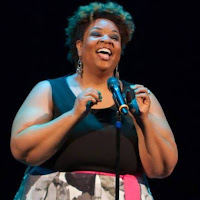Now imagine having to work while going through all of that. Seems insurmountable, doesn't it? Thanks to a group called Careers and Cancer, it isn't.
Careers and Cancer's mission statement is "Cancer and Careers empowers and educates people with cancer to thrive in their workplace, by providing expert advice, interactive tools and educational events."
They have identified key issues: "As the number of cancer survivors in the U.S. continues to grow, there is an increasing need for resources and support to help them get back to everyday life and work after diagnosis and treatment."
- 44% of people newly diagnosed in 2014 were working age.
- Cancer survivors are more likely to be unemployed.
- 20% of cancer survivors still report work limitations affected by cancer-related problems 1–5 years after diagnosis.
- 922 cancer discrimination claims were received by the Equal Employment Opportunity Commission in 2015.
The survey further identified the top three reasons people continue to work after a cancer diagnosis:
- 69% need to work for financial reasons
- 53% currently feel well enough
- 44% want to keep things as normal as possible
- 325,000+ individuals access expert information, support and resources online, in print and in person annually
- 69,000+ publications were distributed in English & in Spanish in 2015
- 98% of 2015 program attendees said they can use what they learned in their day-to-day activities
- 3/4 of surveyed healthcare pros are initiating conversations with patients about the impact of cancer on work more frequently than they did before attending the 2014 Educational Series
- 465+ job-hunting survivors have had their resumes reviewed free of charge since 2013
- $87,714 in travel grants have brought 141 scholarships recipients from 35 states to the National Conference since 2-14
"Our innovative programs for survivors and healthcare professionals provide the vital support, tools, and information they need to navigate the practical and legal challenges that follow a diagnosis."
The next National Conference will be held on June 17, 2016 at The Graduate Center at CUNY, in New York City. And it's FREE! For more information, or to register, visit Careers and Cancer National Conference 2016.
For more information about Careers and Cancer, and how they can help you, visit Careers and Cancer.






